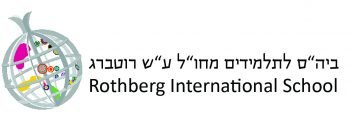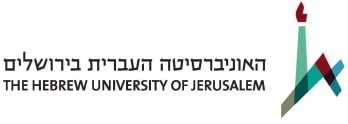Amani Rohana is a lecturer and research assistant at Hebrew University. She is also the director of the nonprofit Building Bridges East, which provides communication and leadership training for women and girls in the Jerusalem area. Rohana holds degrees in psychology and international relations.
Firsthand Experience
Whether she’s teaching Arabic at HebrewU or serving as director of Building Bridges East, one thing ties Amani Rohana to the young people she works with: she’s been in their shoes.
Rohana attended the university herself, earning bachelor’s and master’s degrees with a focus on the theoretical aspects of international relations. “It’s not only about politics and security and those big words we’re all afraid of,” she says. “It’s what human interaction looks like when you see it from the outside.” Her master’s thesis explored the language prime ministers use to name groups – and how those choices play out on an international stage and affect public perception. “The semantics, the words that we use, can affect the way we see the world.”
Similarly, Rohana first got involved with Building Bridges East as a participant. She was a high school student in Haifa when she heard about a program run by the nonprofit’s sister organization in Denver, Colorado – bringing together Palestinians, Israelis, and Americans. “It was a great opportunity to go to the US, and I said, ‘Why not?’” A few years later, Building Bridges East opened its doors in Jerusalem, and in 2015, Rohana took over as director.
“Building Bridges is about creating a safe space for women, where they can explore the communities they come from, explore who they are, and then acquire the skills to make some kind of change in their communities,” she explains. “I participated when I was 17, and seeing the change it’s made in me as a person … and try[ing] to, in a way, pay it forward – it’s really been life-changing.”
And because all of her colleagues at Building Bridges East are also alumni, Rohana says, they can draw on a common foundation from their training. “This is a skill we took from the programs, running this dialogue and discussion. It’s a home to people with different experience with very different thoughts and ideas, and people are able to disagree, but do it in a way where the other is listening.”
In the Classroom
That experience with debate and discussion also comes in handy at HebrewU, where Rohana teaches in the Mechina Preparatory Program.
“My work in Building Bridges as a facilitator, as a director, as someone who has been working with different groups – I think helped me a lot in being able to say, ‘Okay, I can teach a class,’” she says. “But it’s also very different. I think I’m still learning as I go.”
Rohana teaches two courses in Arabic at HebrewU’s Rothberg International School (RIS): Academic Writing, and Political Science, Civil Rights, and Policy in Israel. Each, she says, comes with its own challenges. “Writing can be exhausting for students because it’s very technical,” she explains. “But they get to choose their own research or subject or field … and they come up with very interesting ideas.”
The political science class, she says, is less technically challenging, but highly theoretical. “We learn about the different systems and different countries, and we learn about the theory that drives human society … It’s very needed and very important.”
Rohana works specifically with Arabic-speaking students – and again, remembers being in their shoes. “It was important to me to be teaching this group specifically … I reflect on how it was for me to be a student,” she says. “Not knowing how to approach an academic paper, and being in this whole different place that you’re not used to.” The most rewarding part of the job, she says, is watching students gain confidence “on the academic level but also on the personal level. At the beginning, you see shy students who aren’t sure what’s going on … And then through the semester, you start seeing them ask questions, start seeking out different people. Start to not be afraid of expressing themselves.”
A Safe Space
Rohana says that transformation seems to happen especially quickly at RIS. “There’s a lot of supervision and support at Rothberg,” she says. “Students can always find answers to any questions they have … And they’re encouraged to ask the question, which I think is even more important than providing the answer.”
Her experience as a member of the staff has been positive, as well: “RIS, I think, is very special … It’s not this big corporate or bureaucratic system that you get lost in.” And just like at Building Bridges East, she says, communication is key: “The people there are willing to listen and are very flexible … It’s been a good environment. A safe space.”
Education
- Master’s degree in International Relations, The Hebrew University of Jerusalem (2016)
- Bachelor’s degree in Psychology and International Relations, The Hebrew University of Jerusalem (2014)

